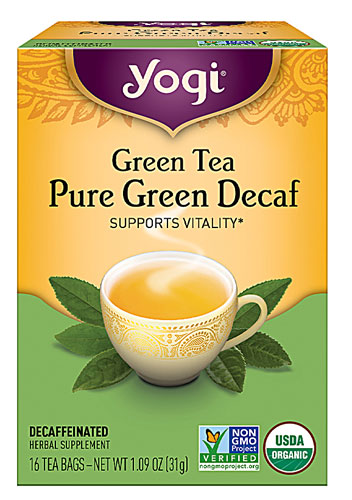[vc_row][vc_column][vc_column_text]Savoring a few too many cups of coffee or sipping a few too many colas may be bad for your heart.
A study presented in August 2024 at an American College of Cardiology conference found that daily consumption of more than 400 milligrams of caffeine might
boost the risk of cardiovascular disease in otherwise healthy people.

Study results: The effects of too much caffeine
In
the study, featuring 92 adults ages 18 to 45, nearly one-fifth of the participants consumed more than 400 mg of caffeine each day. That translates to four cups of coffee, 10 cans of soda or two energy drinks.
The researchers say their study shows consuming 400 mg of caffeine each day raises someone’s heart rate and blood pressure over time. Caffeine is a stimulant that revs up activity in the brain and central nervous system.
“Due to its effect on the autonomic nervous system, regular caffeine consumption could put otherwise healthy individuals at risk of hypertension and other cardiovascular events,” the study’s lead author Nency Kagathara, a student at India’s Zydus Medical College, said in a news release. “Increasing awareness of these risks is vital to improve heart health for all.”
What are the other risks of caffeine consumption?
The heart study serves as the latest piece of evidence that caffeine consumption can lead to health risks.
Consuming up to 400 mg of caffeine a day generally causes no harm in healthy adults, according to the National Library of Medicine, but sensitivity to caffeine differs from one person to another. No matter the threshold, including too much caffeine in your diet could cause health problems
It’s worth noting that while coffee, tea, energy drinks and chocolate are
common sources of caffeine, it might also be found in energy bars, protein bars, ice cream, chewing gum, dietary supplements and over-the-counter medication, the U.S. Food and Drug Administration (FDA) says. Even decaffeinated coffee and tea might contain some caffeine.
There’s no difference in the way your body handles caffeine or the safety between naturally occurring caffeine and caffeine that’s added to a product, “so be sure to consider all sources of caffeine in your diet,” the FDA advises..
Aside from a rapid heart rate and high blood pressure, potential effects of consuming too much caffeine include:
- Muscle tremors
- Chest pains
- Headaches
- Nausea
- Diarrhea
- Insomnia
- Anxiety
- Dizziness
- Restlessness
Extremely heavy consumption of caffeine might cause seizures or even death, the FDA says.
“Within one hour of eating or drinking caffeine, it reaches its peak level in your blood. You may continue to feel the effects of caffeine for four to six hours,” says the National Library of Medicine.
Who should avoid or limit caffeine consumption?
The National Library of Medicine says people who should avoid or limit caffeine consumption include people who:
- Have sleep disorders
- Have migraines or other chronic headaches
- Have high blood pressure
- Are children or teenagers
- Are breastfeeding
- Are pregnant
Caffeine consumption can be especially harmful to unborn babies. A study by researchers at the National Institutes of Health found that
pregnant people who consumed the caffeine equivalent of as little as half a cup of coffee a day on average had slightly smaller babies than pregnant women who didn’t drink caffeinated beverages.
How to reduce consumption of caffeine
If you’d like to reduce your consumption of caffeine, consider these tips from the Mayo Clinic:
- Keep track of caffeine consumption. Monitor how much caffeine you’re consuming in food and beverages. To help with this, check the caffeine count on food and beverage labels.
- Switch to decaffeinated beverages. Most decaffeinated beverages “look and taste the same as their caffeinated counterparts,” the Mayo Clinic says.
- Ease into curbing caffeine consumption. For example, drink one fewer can of soda or drink a smaller cup of coffee each day, the Mayo Clinic recommends. This can help cope with caffeine withdrawal symptoms like fatigue, low energy, headache, irritability and difficulty concentrating.
What are the benefits of caffeine?
Although caffeine is associated with some health risks, it also provides some health benefits if consumed in moderation. According to the
American Heart Association,
American Medical Association and
Johns Hopkins Medicine, potential benefits include:
- Decreasing the risks of developing chronic diseases like type 2 diabetes, Parkinson’s disease and some cancers.
- Lowering the risk of suffering a stroke.
- Reducing the risk of depression.
- Protecting the liver.
- Increasing longevity.
- Boosting endurance, speed and alertness.
[/vc_column_text][/vc_column][/vc_row][vc_row][vc_column][vc_text_separator title="Featured Products" border_width="2"][vc_row_inner equal_height="yes" content_placement="middle" gap="35"][vc_column_inner width="1/3"][vc_single_image image="178447" img_size="full" alignment="center" onclick="custom_link" img_link_target="_blank" css=".vc_custom_1727547983346{padding-right: 7% !important;padding-left: 7% !important;}" link="https://www.vitacost.com/dandy-blend-non-gmo-instant-herbal-beverage-with-dandelion-7-05-oz"][/vc_column_inner][vc_column_inner width="1/3"][vc_single_image image="178448" img_size="full" alignment="center" onclick="custom_link" img_link_target="_blank" css=".vc_custom_1727547998799{padding-right: 7% !important;padding-left: 7% !important;}" link="https://www.vitacost.com/lavazza-decaffeinated-coffee"][/vc_column_inner][vc_column_inner width="1/3"][vc_single_image image="178446" img_size="full" alignment="center" onclick="custom_link" img_link_target="_blank" css=".vc_custom_1727548018532{padding-right: 7% !important;padding-left: 7% !important;}" link="https://www.vitacost.com/yogi-tea-organic-pure-green-decaf"][/vc_column_inner][/vc_row_inner][/vc_column][/vc_row]




